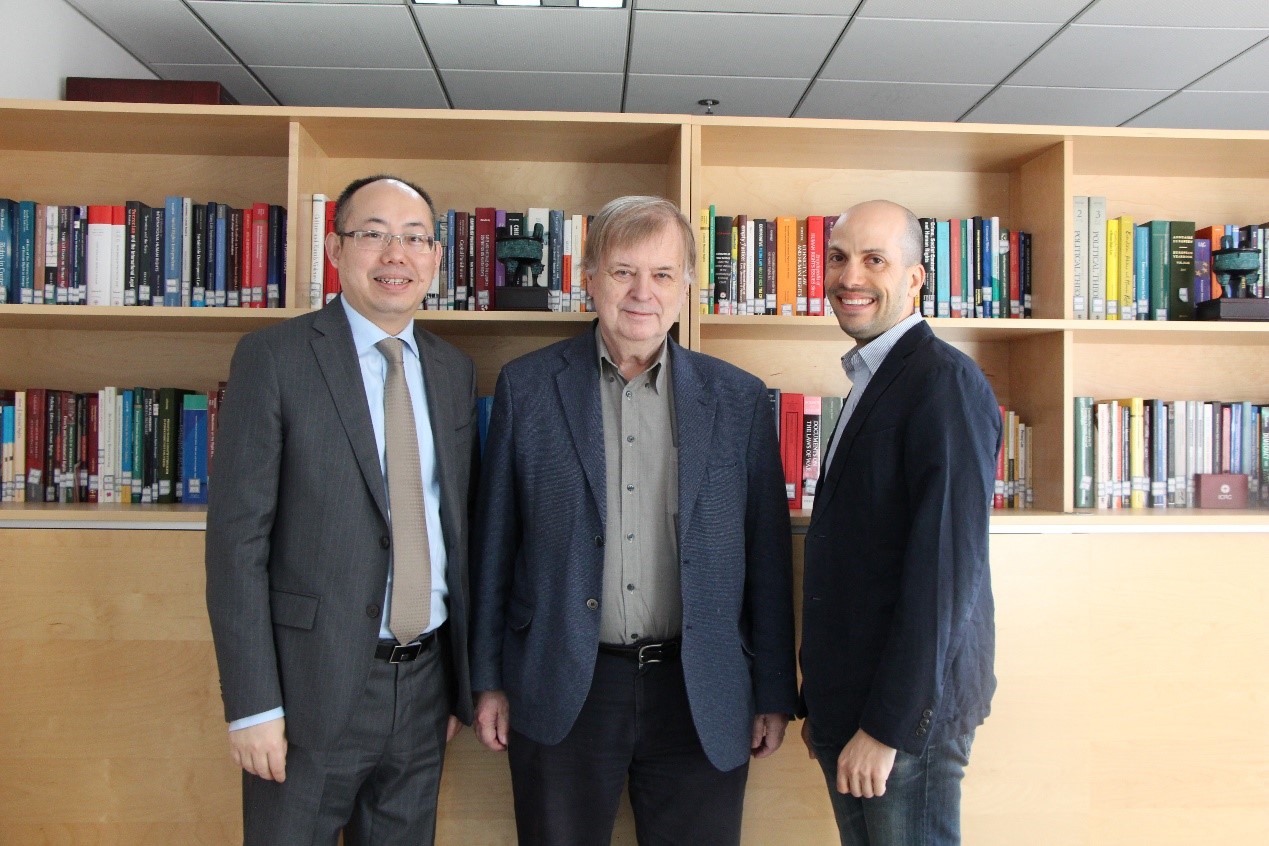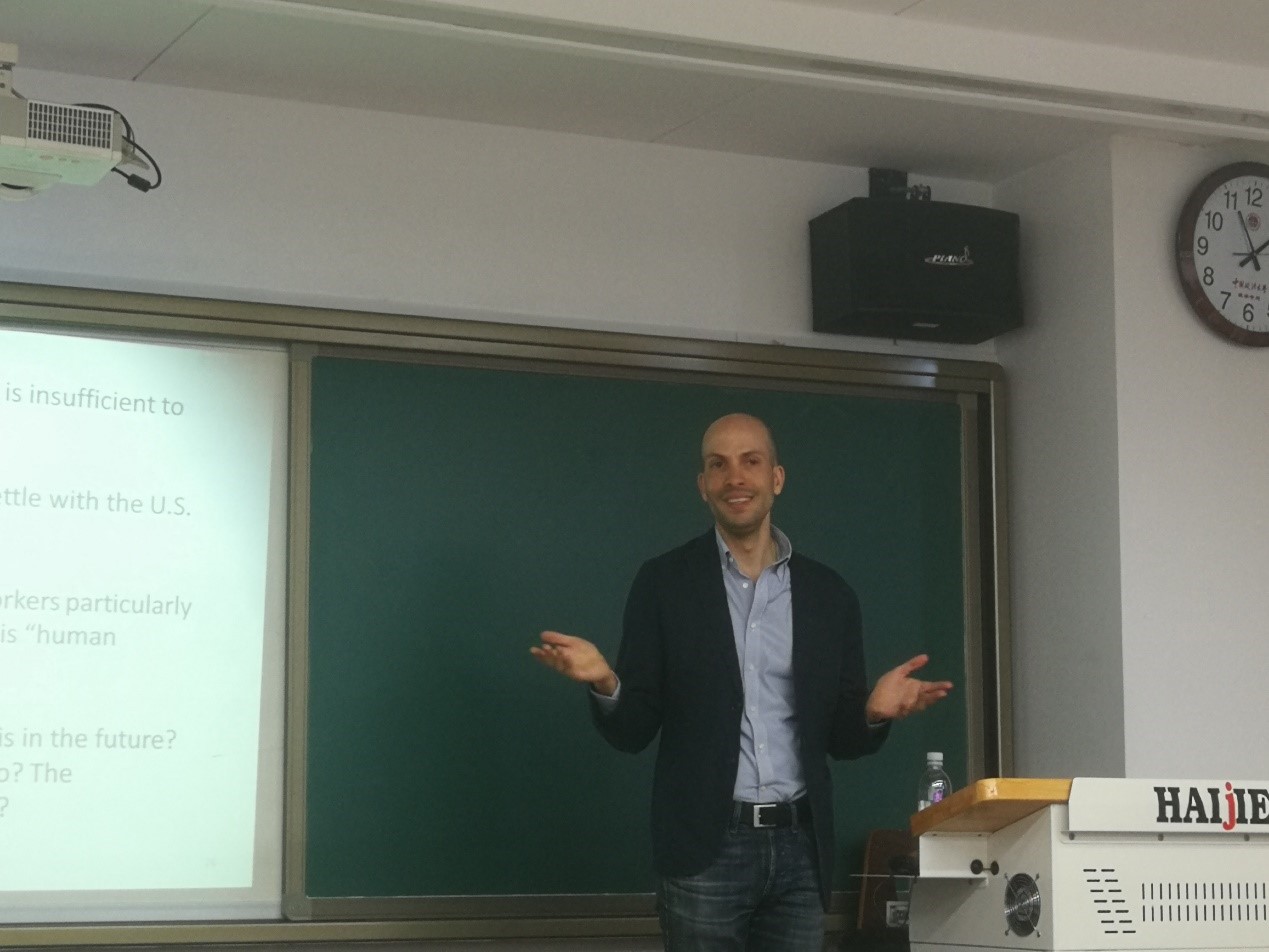On the morning of November 29, 2018, the 348thGlobal Human Rights Forum series was held at A209, Research Building, College Road Campus, China University of Political Science and Law. Mr. Aaron Halegua was invited to give a lecture for teachers and students on the theme of “Fighting Labor Exploitation on U.S. Soil”.

Mr. Aaron Halegua holds a bachelor's degree in international relations from Brown University and a JD from Harvard Law School. He is a lawyer and consultant, and a researcher at the New York University School of Law's Labor and Employment Law Center and the Asian American Law Center. As an American lawyer, he has represented dozens of Chinese migrant workers in employment cases. He also advises Apple, the International Labor Organization, the Asia Society, the Ford Foundation and other groups on labor issues in China, Malaysia, Thailand, Myanmar and Mexico. His main areas of study include labor and employment law, dispute resolution, corporate society responsibility and legal aid. In this lecture, Mr. Aaron Halegua mainly talked about the labor disputes of Chinese immigrant workers in Saipan.

According to Mr. Aaron Halegua, Saipan belongs to the United States. It is located in the Northern Mariana Islands of the Western Pacific. The garment processing industry was once one of Saipan’s main economic pillars. After the decline of the garment processing industry, gambling house were established on the island. Because buildings require a lot of labor, factories often use high salaries or help getting green cards as bait to deceive Chinese workers to work overseas. The Chinese manpower was brought to the island in a "travel mode". They need to pay tens of thousands yuan for agency fees to get this "high salary" job. After arriving in Saipan, the passport will be confiscated. The work takes more than ten hours a day. They have no weekends or holidays, the living conditions are very poor, the remuneration below the legal minimum wage and they often be defaulted on wages. In March 2018, the US Department of Labor announced that employers were in arrears with more than 2,400 workers for nearly $14 million in recruitment fees and salaries. Given the linguistic and cultural barriers, the lack of legal knowledge, and the repatriation that will be forced to repay loan sharks, workers rarely defend their rights by legal means. It was not until 2017 that a male worker fell to his death that the immigrant workers in Saipan caused widespread concern. After the FBI intervened in the investigation, the US Occupational Safety and Health Administration imposed a fine on the responsible party, and the relevant subject was investigated for criminal responsibility. The US Department of Labor also facilitated the signing of a settlement agreement to enable workers to obtain legal wages and compensation and return to China smoothly.

Mr. Aaron Halegua guided everyone to think deeply about the case from the following questions: 1. Government enforcement alone is insufficient to prevent abuse and exploitation. 2. Why did companies ultimately settle with the U.S. Department of Labor? 3. What makes (foreign) migrant workers particularly vulnerable to exploitation? What is “human trafficking” or “forced labor”? 4. How do we prevent abuses like this in the future? What is responsibility of the casino? The construction firms? The recruiters? The students actively expressed their opinions and ask some questions, Mr. Aaron Halegua also answered to the questions patiently. Finally, this lecture was successfully concluded with the enthusiastic applause of the students.
Written by SONG Wenhao